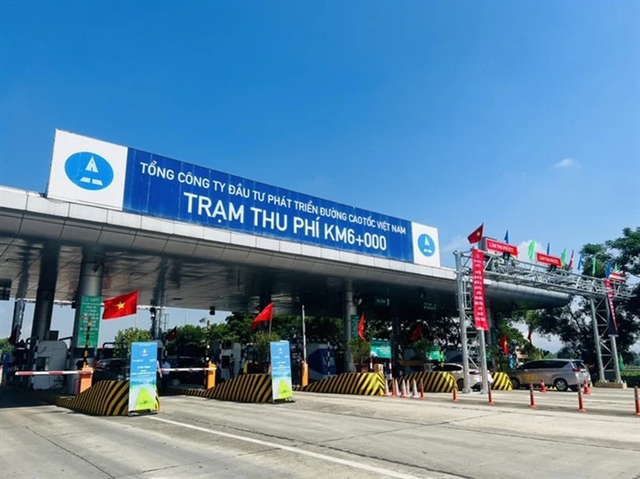Financial expenses surged 67.7 per cent to nearly VNĐ2 trillion, while financial income dropped 61 per cent to VNĐ288 billion, causing after-tax profit to plummet from VNĐ641.2 billion to VNĐ8.9 billion, reflecting growing financial strain.

HÀ NỘI — The Việt Nam Expressway Corporation (VEC) is facing significant financial pressure as its after-tax profit for the first half of 2024 plummeted by nearly 99 per cent, dropping to just VNĐ8.9 billion (US$350.3 million).
Meanwhile, the company’s total outstanding debt has surged to VNĐ37.3 trillion, pushing its financial leverage to a high-risk level and complicating efforts to secure additional funding.
In the first six months of 2024, VEC recorded revenue of VNĐ2.9 trillion, marking a 25 per cent increase year-on-year, while gross profit reached VNĐ1.7 trillion, up 36.7 per cent.
However, financial expenses skyrocketed by 67.7 per cent, nearing VNĐ2 trillion, while financial income plummeted 61 per cent to VNĐ288 billion. As a result, after-tax profit plunged from VNĐ641.2 billion to just VNĐ8.9 billion, highlighting the company's worsening financial situation.
As of June 30, 2024, VEC’s total assets stood at VNĐ90.7 trillion, with long-term assets accounting for VNĐ78.9 trillion. A major concern is the VNĐ18.4 trillion in unfinished construction projects, with the Bến Lức - Long Thành expressway alone accounting for VNĐ17.9 trillion.
The company's total liabilities reached VNĐ52 trillion, making up 57.3 per cent of total assets, with VNĐ37.3 trillion in loans. Given its charter capital of just VNĐ1.1 trillion, VEC’s equity-to-debt ratio stands at a precarious 2.9 per cent, placing the company at high risk when seeking new capital.
To address its financial instability, the Government has proposed increasing VEC’s charter capital to VNĐ39.3 trillion for the 2024-26 period. This initiative aims to strengthen the company's financial capacity, reduce debt pressure, and ensure the timely expansion of key infrastructure projects as part of its long-term development strategy through 2030.
The proposed capital increase would improve VEC’s ability to secure funding more efficiently, particularly as it pushes forward with major expressway projects, including Bến Lức - Long Thành and Hà Nội - Lạng Sơn. Additionally, enhanced financial backing could help optimise operations, improve cash flow and ease interest payment burdens.
While raising charter capital is a crucial step, experts caution that VEC must implement a clear financial strategy, tighten cost control, and enhance operational efficiency. Without a well-structured capital use plan, the company risks continued financial strain and growing debt burdens, potentially jeopardising its long-term sustainability. — VNS





